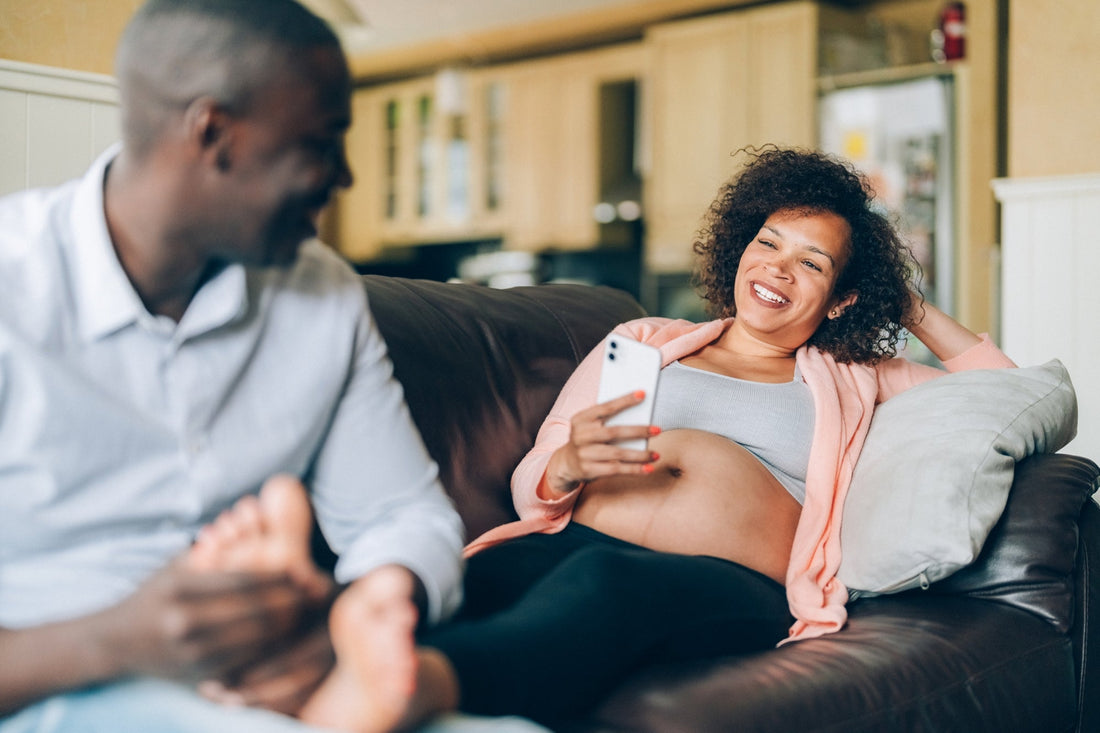From now on, your baby will start to pack on more weight to prepare for life outside of the womb. And you might start to feel some of the more uncomfortable parts of later stage pregnancy, as you near the 3rd trimester.

Insulation
This week, your baby’s lungs are developed enough for them to breathe! They’re not doing it right now; of course, they are still inhaling and exhaling amniotic fluid, but when they’re born, they’ll be ready. From now on, your baby’s weight will start to increase rapidly – newborn babies cannot regulate their own body temperature, so the layer of fat developing underneath their skin will help protect their body temperature after birth.
By the end of week 27, your baby measures around 35 centimetres from head to toe and weighs 1200 grams.
Be kind to your feet.
Have you had days recently, where your feet were almost pulsing in your shoes, but you didn’t dare to remove the shoes in pure (and very reasonable) fear of not being able to put them back on?
We hate to be the ones to tell you this, but… there will probably be more of those moments to come. That’s why it’s so important to spoil your feet a little bit! Feet are essential; they take us everywhere we go – and during pregnancy, they are put under a lot of pressure. Use every opportunity you can to get your feet and lower legs up to help combat swelling. And if there was ever a time to treat yourself to some really comfortable shoes, this is it. You might not find sneakers or running shoes flattering or sexy, but they are some of the most versatile and comfortable shoes you can wear at this point.
Also, why not treat yourself to a pedicure? It will feel great to get the calluses removed and get a foot massage.

Haemorrhoids
Ah yes, another wonderful side effect of pregnancy – haemorrhoids. Everybody can get haemorrhoids, but they are especially common during pregnancy from around weeks 27-28 for a number of reasons. The added blood flow in your body, and particularly around your pelvis, can also lead to swelling in the blood vessels in and around your anus. The added weight of your baby and uterus can also lead to pressure on the blood vessels.
But the most common reason for haemorrhoids is constipation, something which is unfortunately quite common during pregnancy because of the added levels of progesterone in your system and your body’s increased need for fluids.
So, what can you do to keep haemorrhoids to a minimum during your pregnancy?
- Drink plenty of water and other fluids. Even though you might feel like you’re always peeing, don’t cut down on the water. If you don’t drink enough to meet its needs, your body will reabsorb all available water through the colon.
- Eat a diet rich in fiber to help your digestion.
- Exercise (safely, of course). Exercising can help with your bowel movements.
You should always see your doctor before taking any kind of medication against constipation or haemorrhoids.

